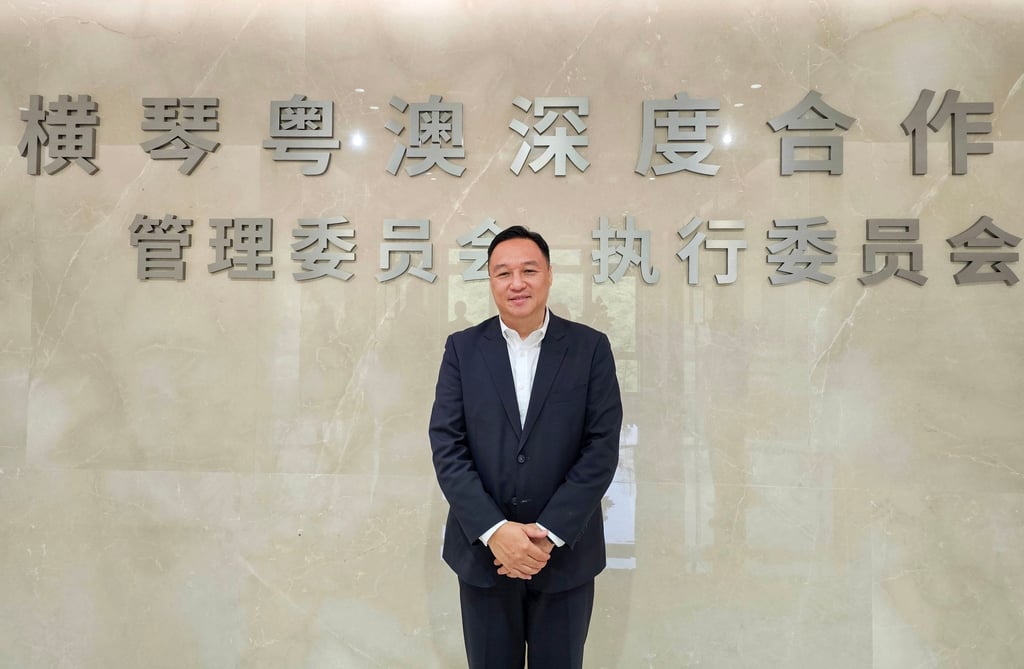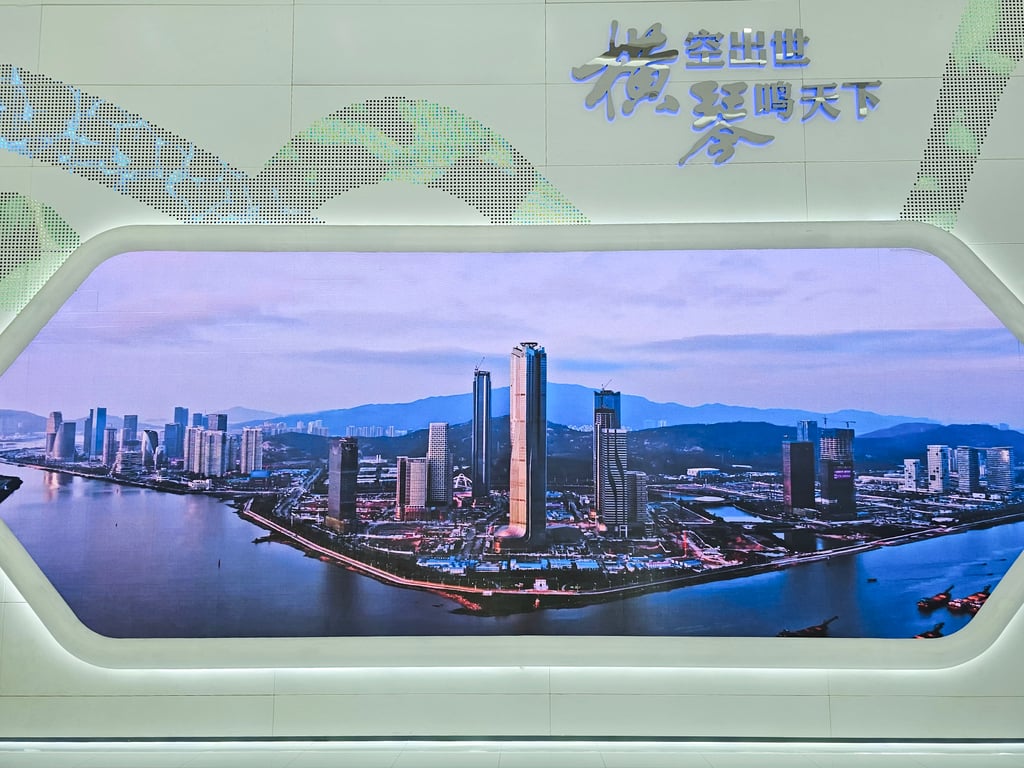
 i_need_contribute
i_need_contribute
Hengqin, an island near Macau famed for oyster farming, is looking to expand its presence in industries including traditional Chinese medicine, technology and finance, as it seeks to attract investors and residents, according to a senior official.
The Guangdong-Macau In-Depth Cooperation Zone in Hengqin, which will turn three years old on Tuesday, will continue to offer low taxes and other policies to support its development, said Su Kun, deputy director of the executive committee of Hengqin Corporate Zone.
“Hengqin is just a few minutes by car from Macau and 40 minutes from Hong Kong, making the island an ideal hub for new start-ups, medical, finance and other technology companies to develop their businesses,” Su said in an exclusive interview on the island. “Hengqin has cheap land, low tax for both corporations and individuals, and a good living environment.”
The zone offers a 15 per cent salary tax rate for individuals, compared with the 35 or 45 per cent that high-income earners are normally subject to, while the company profit tax is also set at 15 per cent, below the normal 25 per cent.
The island, situated in Zhuhai prefecture in China’s southern Guangdong province, was picked by Beijing in 2009 as a priority site for reforms in finance and technology in the Greater Bay Area, which is Beijing’s grand plan, rolled out in 2019, to integrate Hong Kong, Macau, and nine mainland cities into an economic powerhouse.

A media delegation visits an exhibition at Yue’ao Cooperation Traditional Chinese Medicine Technology Industrial Park in Hengqin on June 18, 2024. Photo: Eugene Lee
Hengqin, which dates back to the Song dynasty in the early 11th century, has long been well known for its jumbo oysters.
Farming the bivalve molluscs is still an important economic activity, but Hengqin also has gleaming grade-A office buildings, modern residential flats and a popular theme park called Chimelong Ocean Kingdom, which was established 10 years ago.
“More new development plans are coming,” Su said, adding that Hengqin is roughly three times the size of Macau. “It can provide space at a cheap cost for technology start-ups and other companies to develop their businesses.”
A flagship new project is a Chinese medicine research lab in Hengqin, which will provide facilities for 300 researchers and 700 students. The Zhuhai municipal government and Hengqin agreed at the end of last year to jointly invest 457 million yuan (US$64.4 million) to establish the 57,500-square-metre lab, which will develop new Chinese medicine products by harnessing new technology including artificial intelligence.

Su Kun, deputy director of the executive committee of the Hengqin Corporate Zone, pictured at his office in Hengqin on September 3, 2024. Photo: Enoch Yiu
Those services launched after a two-year pilot project that tested the self-driving vehicles on 330km of roads across the island, with a cumulative test mileage exceeding 380,000km.
Financial firms such as the Bank of China and the Industrial and Commercial Bank of China also operate in Hengqin, providing banking and wealth-management services for residents and financing the development of start-ups and small and medium-sized enterprises.
“All of these projects in Hengqin are intended to establish a new platform for Macau to diversify its economy from gaming to other businesses in healthcare, technology, finance and entertainment,” Su said. “It is also aimed at developing Hengqin to have a good living environment for talents to move in to establish their new homes.”
The zone is also a new model for “one country, two systems” as Hengqin is jointly run by the political leaders of Guangdong and Macau, which means it can get development support from both governments, he added.
The zone allows Macau residents to cross the border into Hengqin easily around the clock, making it effectively an extension of Macau.
Increasing numbers of Hongkongers are coming to Hengqin thanks to a special scheme that started in July last year, which allows Hong Kong drivers to access Guangdong province, Su said.
Looking ahead, Su said the Hengqin government will conduct more roadshows in Hong Kong, around Asia, and in Portuguese-speaking Brazil and Portugal.
“A major challenge for Hengqin is that little is known of the city worldwide,” he said. “Another challenge is the small population, so we need to attract more talent.”

A city scene of Hengqin is seen in the exhibition and trade centre in Zhuhai on September 3, 2024. Photo: Enoch Yiu
Hengqin has 43,000 residents, although daily visitors may be double that number. Even including Macau’s 600,000 residents and Zhuhai’s 2.5 million people, the area has less than half of Hong Kong’s population, which is 7.5 million.
“We would like to do more roadshows to let people know Hengqin is a good place to live and work, while it is also a good investment case,” Su said. “Many of our industries may be at their initial stage of development, but it also means the room for future growth will be huge.”